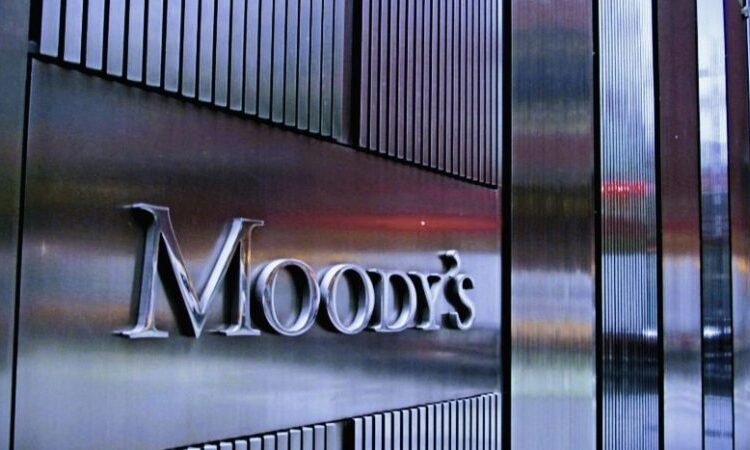
Credit rating agency Moody’s is ready to look into the potential credit score implications of the European Investment Bank’s expected expansion into a broader range of defence and military assets, Euractiv understands.
The US rating giant – one of the world’s ‘Big Three’ alongside Standard & Poor’s and Fitch – said it would need to carefully examine the impact of any potential change to the EIB’s long-standing dual-use lending criteria – which has so far restricted the bank’s investment into defence-related projects to those whose civilian application exceeds their military use.
Kathrin Muehlbronner, senior vice president at Moody’s Ratings, told Euractiv that Moody’s currently holds “a very positive credit assessment” of the EIB, “comparable to the very high ratings we assign to the Asian Development Bank or the Word Bank”, but considerable changes to its defence investment could warrant a re-evaluation.
Euractiv revealed in March that the EU’s lending arm was assessing ways to revise its lending criteria amid growing pressure from member states, EU defence ministers, and the European Parliament to unlock heavier EU investment in defence.
This would entail either tweaking its definition of ‘dual use’ – to favour the military side of the equation – or shifting towards more direct military equipment, projects and infrastructure beyond dual use.
The assessment of environmental, social, and governance (ESG) risk is part of the overall credit score that Moody’s assigns to the EIB and other multilateral development banks that issue bonds on capital markets to raise funds for investment. Moody’s gauges “the issuer’s exposure to ESG risks and the impact of those risks on the credit strength of the issuer,” Muehlbronner said and added:
“As the EU’s climate and development bank, the EIB is a leader in sustainable investment: Would defence investments make some big ESG investors less willing to allocate?”
“The turning point will be: When does [a broader exposure to defence and military assets] become an issue for ESG investors? That’s one angle we’d look into.”
Muehlbronner said it would be “very much a question of the size of its defence portfolio as a share of its broader portfolio: i.e. if we saw it going up to a substantially higher percentage of the EIB’s total annual commitments”.
She said that, currently, “the impact of ESG considerations on the EIB credit score is positive – the EIB’s credit rating is higher than it would be if ESG considerations were not part of its credit assessment”.
“The social and governance considerations are currently the main positives for the EIB’s high rating,” Muelhlbronner said, as Moody’s deems the EIB’s exposure to environmental risk “indirect, and hence neutral.”
“Something we would look at is how this move could affect our positive assessment of the EIB’s exposure to social risk factors.”
First rating agency to mention review of EIB’s triple-A credit score
One core pre-condition for any move by the EIB beyond its traditional lending remit would hinge on its ability to retain its top ratings on both the credit and the ESG scores.
Especially its main Triple A credit score allows the lender to get very favourable borrowing terms on the market. This is a key priority for the bank’s shareholders—the bloc’s 27 member states—that neither the bank nor national governments would be willing to jeopardise, as Euractiv reported.
Moody’s is the first rating agency to confirm that the EIB’s overall credit rating – rather than just its ESG score – would be scrutinised in case of such changes. So far, only the bank’s ESG rating was questioned after Euractiv’s first report.
Muelhlbronner said that another reason to scrutinise larger defence and military investments from the EIB, besides their impact on social and ESG risk considerations, would be their potential effect on the overall visibility of the credit quality of the bank’s underlying portfolio.
Anna Roggenbuck, who oversees EIB policy at independent non-governmental organisation Bankwatch Network, said defence projects with a more pronounced military component would be more opaque to monitor.
“Due to the more secretive and highly confidential nature of such projects, they would offer much less long-term visibility and transparency to the public,” Roggenbuck told Euractiv. “They would, therefore, fall short of the type of transparency required for assets usually financed by multilateral development banks, such as EIB.”
At present, Moody’s doesn’t screen individual exposures in the EIB’s loan portfolio, but Muehlbronner confirmed to Euractiv that any widening of its defence and military exposures would prompt a different approach.
“We don’t usually look into the individual underlying assets in the portfolio, but mostly assess it from a credit quality point of view,” Muehlbronner said.
“If the EIB started investing into a higher portion of defence assets or other military assets beyond dual use, then we would probably want to have a more detailed overview of what they’re investing in – and how is the EIB ensuring credit visibility and quality,” the senior Moody’s executive said.
Increased defence funding could also lead to breaching the bank’s leverage ratio—also called ‘gearing ratio’—which limits it to lending only 2.5 times the amount of its capital base. Any additional investment would need to be on top of the EIB’s core €90-95 billion annual commitments to climate and development projects.
As an indicator of the bank’s level of capitalisation, the gearing ratio is one of the credit variables Moody’s looks at, alongside aspects such as liquidity and diversity of market access.
Reassessment not bound to turn into lower ratings
Muehlbronner said that despite being “one of the most levered institutions”, the EIB has maintained “a very strong capital profile.”
“The performance of its loan portfolio is superb, and the capital adequacy kind of compensates for its relatively higher leverage,” she said.
That also means that, overall, a stronger exposure to defence would not necessarily lead to lower scores, Muehlbronner added.
“The EIB has always shown very strong risk management,” she said. “If shareholders have asked it to go into slightly more risky assets, it has asked them to provide compensation or mitigation, either through raising more capital or through EU guarantees.”
Muehlbronner added that in the EIB’s case, the willingness of its shareholders to safeguard the lender if something goes wrong “has always been very strong.”
“If shareholders collectively decide to change the bank’s position, it’s typically a sign that they’re committed to the change.”
[Edited by Zoran Radosavljevic]







